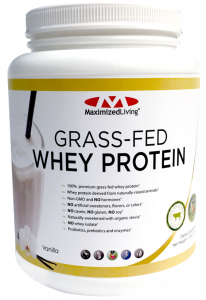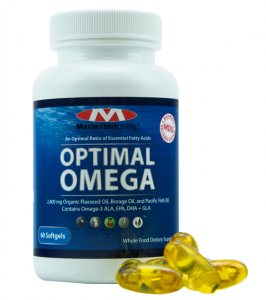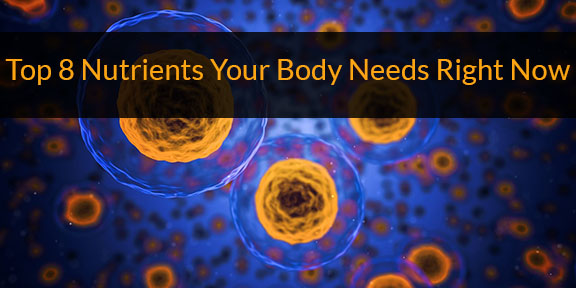There is so much information out there telling you what nutrients you need, it is easy to quickly become overwhelmed. Today, I am breaking it down for you to give you the top 8 nutrients your body needs right now for optimal performance. Whether you are sick with the flu, fighting inflammation, or needing to lose weight, these 8 nutrients will help your body do exactly what it was created to do.
Getting the nutrients you need was never meant to be complicated, in fact it is very simple. If you learn this list and base your meals around these fundamentals, you will be living a healthier life one good food decision at a time.
What are Nutrients?
The Webster definition of nutrients is “food that provides nourishment; furnishing nourishment”. There are foods and drinks that provide essential nutrients to your body that help furnish and facilitate a healthier life. There are thousands of nutrients that are healthy and beneficial to your life but these that I have listed are the top 8 best foods to incorporate into your diet every single day.
8 Nutrients Your Body Needs Now
1. Protein
I always say protein are the building blocks to your entire body. Protein does not simply form muscle but it creates new enzymes, regulate your body’s tissue and organs, balances your hormones, and helps fight bacteria. Proteins are made up of amino acids, and nine out of the twenty amino acids are essential because your body cannot produce them. Here are the nine.
- Lysine
- Threonine
- Histidine
- Isoleaucine
- Leaucine
- Methionine
- Tryptophan
- Valine
- Phenylalanine
 The best way to ensure getting all of these amino acids is to eat free range, grass fed meat, cage free eggs, beans and nuts. Plant based proteins are good, although they are usually lacking in a few of these amino acids.
The best way to ensure getting all of these amino acids is to eat free range, grass fed meat, cage free eggs, beans and nuts. Plant based proteins are good, although they are usually lacking in a few of these amino acids.
This Maximized Living Grass-Fed Whey Protein supplement is my preferred protein powder and one of the most affordable ways to make sure you’re getting enough quality protein in your diet. We offer it in my office and online here.
2. Water
Your body is made up of somewhere between 55 percent to 75 percent of water. So yes, your body can go a few days without food but it cannot go long without water. Water is essential to detoxing your body, keeping a steady temperature, and digestion. Water is a part of every single cell in your body, so this makes drinking an adequate amount of water every day essential to your health. How much water is really enough? Many studies have been done on that magic number for water intake, but the thing is that many factors effect this number. How active you are, your age, your weight, and where you live all play into this. Research has found that men need an estimate of 3.7 liters and women need 2.7 liters a day. In addition to drinking water there are many fruits and veggies that will keep you hydrated as well.
3. Carbohydrates
Carbs are very important to the health of your body. I know many people do their best to steer clear of carbohydrates, but there are healthy complex carbohydrates that are a must have for your body. Carbohydrates break down into glucose which fuel your body and brain. They also work together with proteins inhibiting the protein from breaking down. They stabilize blood sugar levels, and are filled with minerals, vitamins and antioxidants. Carbohydrates are whole grains, fruits and vegetables and are a strong staple to have in your diet.
4. Calcium
I know you probably heard from your mom or dad growing up, “Drink your milk, it builds strong bones.” And yes, calcium does build strong bones and teeth but that is not all that it’s good for. Calcium affects your muscles, blood flow, your nerves and their function, and the overall framework of your body. Calcium is found in dairy products and it is also found in leafy greens, certain beans and salmon. Do your best to include these foods in your diet to get your daily calcium requirement.
5. Potassium
Ever wonder what potassium does to your body? It helps your muscles contract, stabilizes your heart health, and it has many positive effects on your blood. It maintains blood pressure and fluid balance, and it regulates your blood from becoming to acidic. So, it’s pretty important I would say. Most people believe that potassium is mainly found in bananas however it is actually found in a wide variety of foods. Sweet potatoes, spinach, avocados, and salmon are all excellent sources of potassium.
6. Vitamin D
We all know vitamin D as the “sun vitamin”, but statistics show that most people are deficient in vitamin D, and it has turned into a global health problem. Vitamin D has many incredible benefits including absorbing calcium, strengthening the immune system and increasing muscle function. You can also get vitamin D from eggs, fish and mushrooms but most people benefit greatly from taking a supplement.
7. Omega 3-Fatty Acids
Acids
Omega 3-fatty acids are not created by the body, which means they have to be obtained by food, and believe me this is important because not only does it optimize your overall brain health, it prevents heart disease, fights depression, assists in the development of a baby, and it lowers inflammation. Salmon is a great way to get your daily intake of omega-3’s. And another way is through eating chia seeds, flax seeds and walnuts. Fish oil is also a great supplement to take to get your daily dose of omega 3 fatty acids.
8. Sodium
Most people think they need to avoid sodium, but the truth is there are many benefits to consuming a healthy portion. Sodium supports the function of your muscles and nerves while also regulating blood volume and fluid balance. Yes, it can lead to high blood pressure if eaten in excess, so the amount recommended is a teaspoon of salt a day. Many foods contain sodium naturally like nuts, seeds, vegetables, grains and meats. So avoid the processed foods that have added sodium and focus on eating the naturally salty foods. Those are better for your body overall.
Final Thoughts
- These eight nutrients are very important for the overall health of your body. They support nerve, muscle, and heart function while allowing your body to grow, sustain and ultimately thrive.
- Eating a well balanced diet of fruits, meats, seeds, nuts and veggies should allow you to get all of the nutrients you need.
- Supplements do help and in some cases they are needed. Talk to your doctor and get a good plan on what supplements will work best for you.
- Everything must be done in moderation.
- Don’t be overwhelmed by the amount of information out there. Pick these eight nutrients, or start with two or three and begin incorporating them into your diet.
For more information, health articles, and supplements click here


Thanks to the wonderful guide
Thanks for the great post
I like the article
This is truly helpful, thanks.